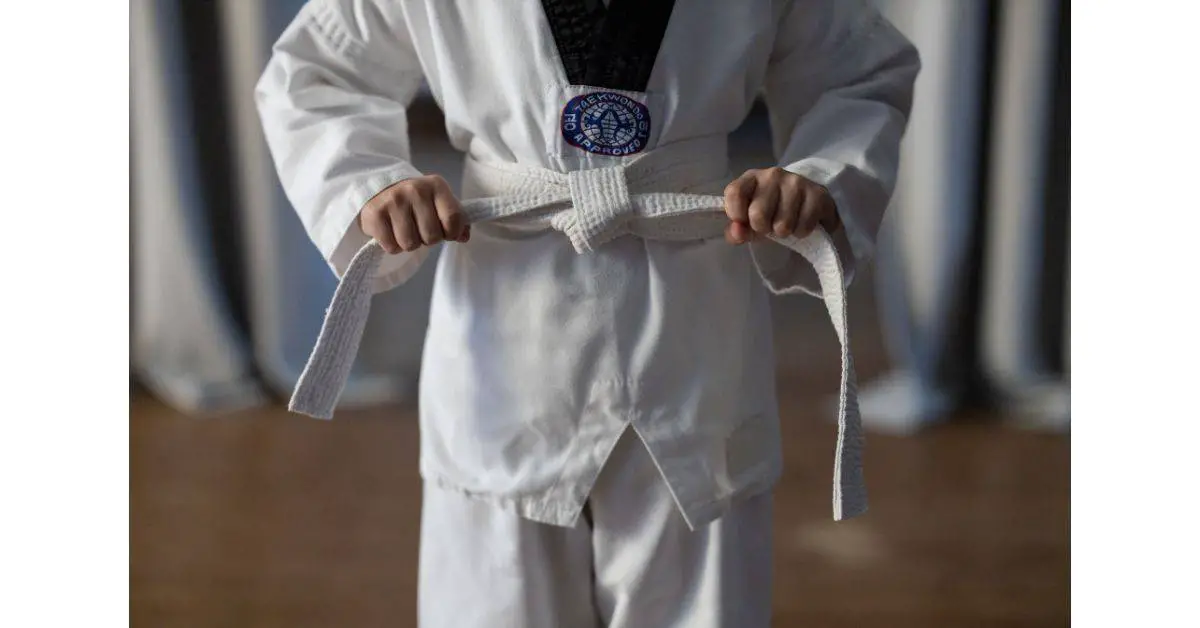If you’re a karate white-belt, this article is for you. If you want to learn how to progress faster and advance through the belt order, this article is for you.
Today, many karate trainees aren’t familiar with minor tips to help them progress faster. Therefore, in their training, they won’t be the first names to pop on the list of advancements.
So, by reading this post, you’ll learn how to progress faster and attain the next karate belt effortlessly. The primary issue, for most practitioners—is staying consistent. After all, keeping up with training and staying motivated—is demanding and can drain the soul from you.
But, that doesn’t mean you can’t widen your knowledge and thus figure different ways to boost your motivation. Thus, staying consistent—becomes effortless. Then, you’ll be more eager to learn and keep training.
Without further ado, let’s dive into the 11 best tips every karate white belt should know. Again, if you follow these principles in any martial art training process, you’ll both learn and progress faster.
#1– Think big
The first tips I’ll address—is thinking big. There’s a fantastic book about the whole concept of thinking big, named: The Magic of Thinking Big, by David Schwartz.
If you think big and positive, your mind will constantly find creative ways to complete the task. If, however, you lower your value and think negative thoughts, you’ll know, deep down, that you don’t deserve the advancement.
So, the next time you attend a karate training session, think big. Know you can defeat anyone—regardless of their size or skills. Believe in yourself, and everything will fall into place.
The next tip will be contrary to this one. So, let me clarify; it’ll help if you won’t concentrate on the end goal too much. If, for example, your goal is to attain the black belt, and you can’t stop thinking about it, you may be in for some consistency trouble.
That’ll happen because, at some point, you’ll feel a certain lack. If all you want is the black belt and nothing else, you’ll find yourself not as eager to train.
So, think big; but, don’t focus on the end goal too much.
#2– Set small milestones
The second tips we’ll discuss is: setting small milestones.
While thinking big is vital for your overall progression, it’ll be best if you combine your end goal with many small ones. For example, many trainees set their eyes on the black belt. Then, they forget to enjoy the path ahead. So, setting small milestones will help you focus on the path—instead of on the end goal.
Therefore, progressing becomes immediately easier. You don’t feel an urge or a lack of something. Rather, you’ll begin to feel fulfilled and happy with your training process.
Some example of small milestones are the following:
- Beating an opponent
- Learning a technique
- Attaining the yellow belt
- Improving your physical shape
- Enjoying training more
These are just some examples that popped into my head. However, you can think this through and come up with a thorough list of small goals to set.
Now, if you combine these milestones with an end goal, and you think big, your progression rate will skyrocket.
#3– Familiarize yourself with the culture
Many karate trainees attend a workout after workout and not feel connected to the culture. As a result, a lack of purpose will soon arise. Of course, that affects motivation and hence consistency.
However, those who learn to love the culture and history behind the art of karate, also will boost their progression rate. Eventually, it gives them a sense of fulfillment and increases their well-being.
After all, a sense of purpose is everything. If you don’t have a WHY for your training, you also won’t be eager to attend more workouts.
Purpose is, indeed, everything. Thus, the next tip will discuss just that – why you must have a proper reason you fully believe in, in your training.
#4– Have a purpose
Human beings are influenced by purposes. How do you think people accomplish extraordinary feats? Exactly, by having a solid reason.
On the other hand, those without a purpose will also have no drive. This drive is what moves us, human beings, and encourages us to wake up in the morning. If you lack one, you’ll also lack motivation and consistency.
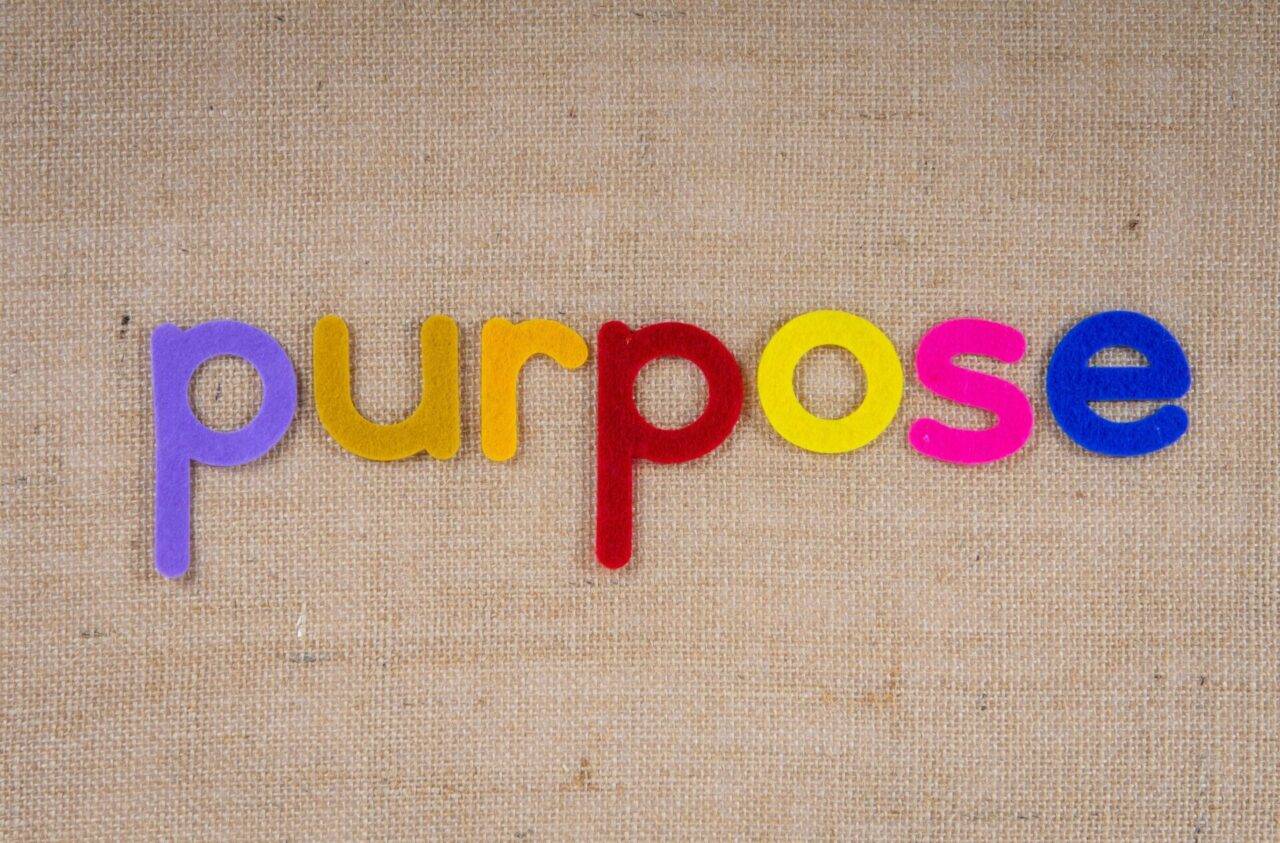
Finding a purpose isn’t as demanding as most people think. In fact, it can be easy and quick if you think deeply of it. If you started to practice karate in the first place, you did it for a reason. So, think deeply and understand the reason.
Finally, let your reason be a guiding light. Follow it religiously and take action relating to this purpose. For instance, if your reason for training is to learn self-defense, focus on that.
However, your purpose could be anything else; here are some examples:
- Learning self-defense
- Improving confidence and self-esteem
- Bettering physical shape
- Getting outside your house
As you can spot, these are all long-term goals. A purpose is something that drives you. Thus, it’ll be best if it’ll be something to strive for. Mostly, you won’t fulfill it in the first couple of months of training. As a result, your drive to train will be stretched for extended periods.
#5– Avoid overtraining
This particular tip has been something many trainees experience. As a result, their overall progress decreases. Karate is no different. In fact, many karate trainees experience the symptoms of this without ever knowing this is the reason.
Overtraining can be a major setback if you do karate too often or too much. As a result, your muscles will not be able to recover before the next workout. Thus, harmful symptoms of that result will begin to flow into your life naturally.
Nonetheless, avoiding overtraining—can be easy if you know the basic guideline, which is not to train on consecutive days.
Regardless of which muscles you use most in your karate training, if you train on consecutive days, for example, Sunday followed by Monday, you’ll attract harmful symptoms.
Essentially, you won’t let your muscles enough time to fully recover before using them again. So, what’ll happen? You’ll cause damage to your muscles, which can also be permanent.
To avoid overtraining, you must avoid training karate on consecutive days. Thus, try to spread your workouts through the week.
#6– Expect results
Next, expect results. We all know how it feels to invest plenty of effort only to end up feeling not having accomplished anything. Well, we want to avoid that and cut this mindset from our minds.
If you don’t expect results, feelings of lack will arise. You want to know the fruits of the seeds you planted (effort invested), are coming, and they’re going to be sweet.
If you don’t, you’ll invest plenty of effort without experiencing any benefits or outcomes. Of course, don’t fixate yourself to think about the results too often. Rather, know they’re coming and that they’re the natural outcome of your hard work.
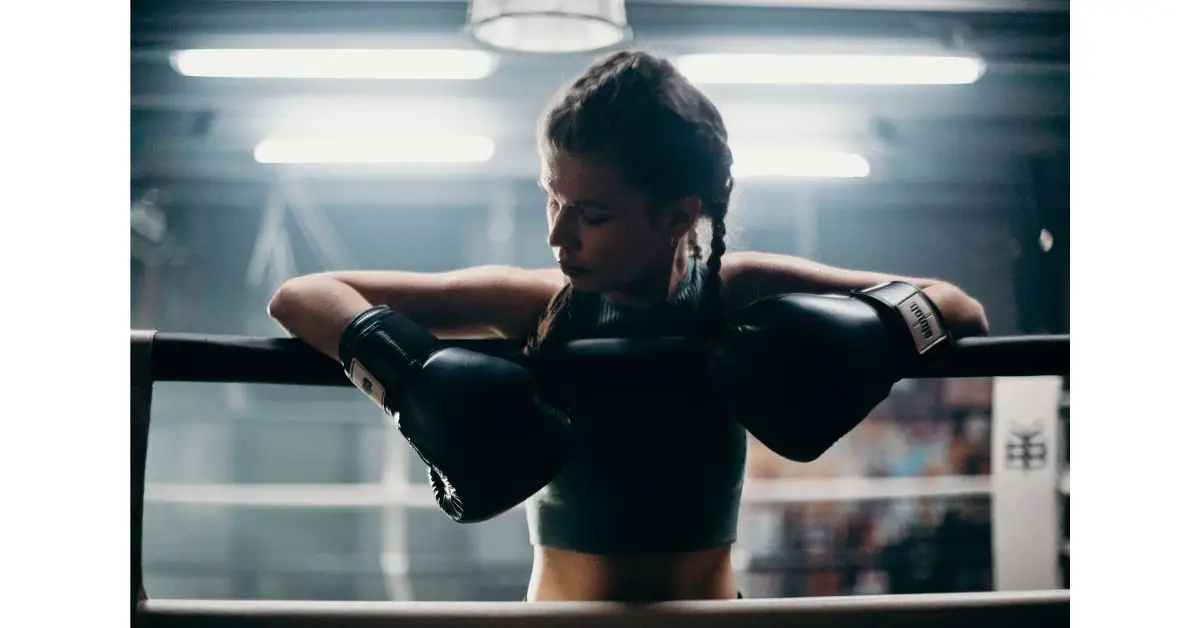
After all, if you work hard, you’ll also experience more results.
#7– Know the beginning is the most difficult part
Every start of anything—is more challenging. You don’t know what to expect. While you may have done your research and know what results to expect, you haven’t experienced them. Therefore, it’ll be difficult to invest plenty of effort without knowing what’s ahead.
The start is the most challenging because you have never experienced any results from this doing. So, in our case, you exercise yourself in karate training without knowing exactly what you’ll learn.
You’re showing up and dedicating yourself to the art of karate. However, it doesn’t seem to return the favor. Of course, once you get the hang of things, you’ll start to realize how many benefits and positive results you notice.
That’s the point when training becomes more manageable. Until then, you invest plenty of effort without getting any results. So, if you can get through this phase, where most people quit, you’ll be solid for the rest of your journey.
#8– Focus on what you love
The 8th tip is to focus on what you love. While that applies to everything in life, I see it more clearly in karate and all martial arts training. If you focus on the fun parts of training, you’ll also be more inclined to stay consistent with your training.
Many negative parts will rise, notwithstanding the fact that you focus on what you love. So, start to filter the negative parts of training. For example, I’ve found myself not wanting to show up to karate training when I’m at home.
Thus, once I noticed that, I familiarized myself with this feeling and got immune to it. As a result, I no longer feel the urge not to show up to training, even though I’m at home.
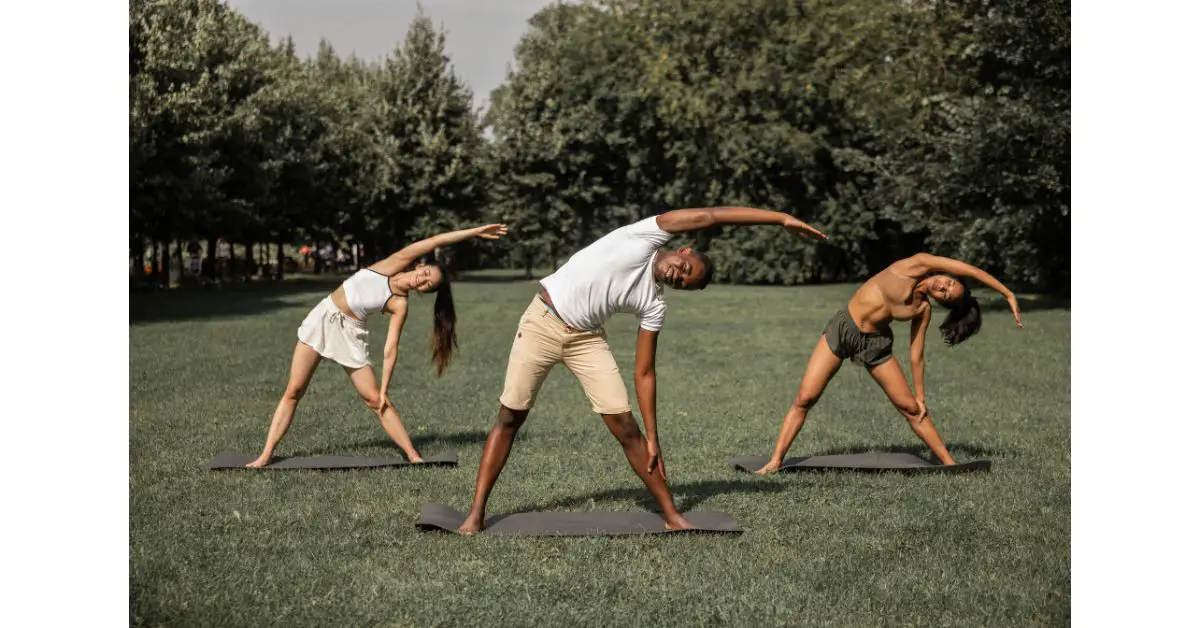
The positive parts of karate training can be anything. It can start from learning new techniques to hitting the punching bag. Moreover, you may find yourself enjoying sparring rather than punching and kicking a non-moving object.
What you focus on doesn’t matter as much as concentrating on what you love.
#9– Address your weaknesses
Ask any karate master, and he’ll tell you he’s not perfect. Everyone has their weaknesses, regardless of their rank. You can be a black belt and feel as if you haven’t learned 10% of the art. Truly, that’s possible.
If you know you’re not perfect, and you address your weaknesses, you’ll be on the verge of improvement. Many egos of karate trainees are too prominent in their lives. As a result, they can’t seem to admit they have any weaknesses.
Do you think they’ll improve? I think not.
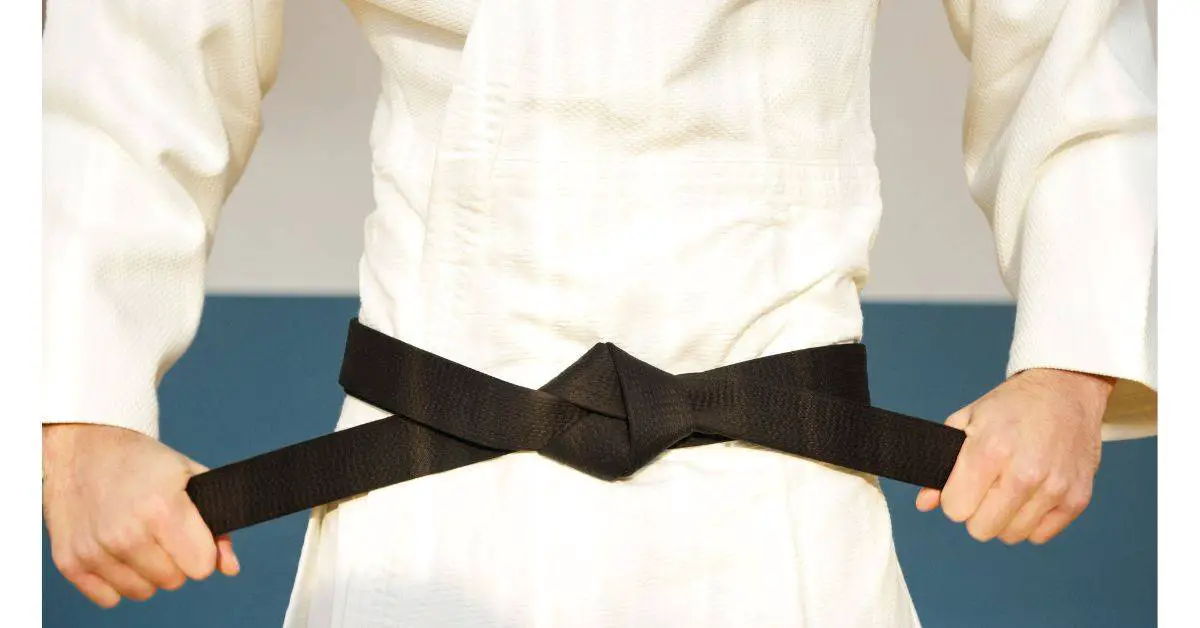
Improving your weaknesses can feel incredibly well, regardless of your rank. Of course, karate white belts are more likely less competent fighters than those who have made it their lives.
After all, your weaknesses define you. If you know you have them, you’re already half way there.
#10– Know which results to expect
Next up, know what you’re about to change in your life. If you just started to do karate, your entire life is about to change. And no, I’m not exaggerating to make it sound attractive. Not at all; your life is about to change.
By knowing which results and how your life is about to change from training in the art of karate, you’ll know when you’re progressing. On the other hand, you’ll also know when you’re stuck in the same spot.
So, which results should you expect to attain? Source
- better physical shape
- increase self-confidence
- improve pain tolerance
- teach you to use self-defense
- decrease overall stress
- assist you in controlling aggressiveness
- shorten reaction time
- improve your performance under stress
- enhance self-esteem
- better social life
- martial arts are a form of self-help
As you can see, the list is long and goes even further. These are some examples of various benefits trainees can expect from doing karate consistently.
#11– Know that you’ll soon be a yellow belt
Lastly, always have hope for the future. Yes, earlier I mentioned that looking too often into your end goal—may not be as beneficial. However, if you don’t, you’ll find yourself not as eager to train and learn.
Always remember, the hard work you currently invest will reap many benefits in the near future. Now, karate, and many other martial arts, showcase your progression with a concrete sign, a colored belt.
While the color of your belt doesn’t represent your skills as accurately (some brown belts are more competent fighters than black belts), it does represent something. So, karate trainees correlate themselves with their belt color.
If you focus on it, or you don’t even care, you’ll soon attain the yellow belt. Once you do, accept that you deserve it. Only then will you be able to stay consistent with training through your progression in the belt system.
If you want to learn more about karate’s belt color system, follow the link to an in-depth guide I wrote on the topic.
The future is bright, never forget that, even in the hardest of times.
How to progress faster in karate?
By following the 11 tips I mentioned in this article, you’ll boost your karate learning curve and progress faster through the belt system.
To progress faster in karate, you must remain humble enough and silence your ego. Only then will you stay eager and excited to constantly learn more about this art. All masters are humble enough to admit they’re imperfect. If they are imperfect, how are you perfect?
Again, don’t focus your progression too much. Instead, remain eager and excited to learn more and more fighting techniques. Moreover, remain humble and always want to learn more about everything related to karate, even its history.
Once you understand karate’s history, you’ll also know its purpose. Many trainees don’t know why karate was born in the first place. I mean, everything exists for a reason.
If you want to learn more about karate’s history, follow the link to an article of mine on the matter.
How long does it take to attain each karate belt?
Attaining each karate belt will require your time and effort. As a result, if you want to progress through the colors, ensure you follow the tips I presented in this article.
Nevertheless, let’s examine a table I constructed to showcase how much time does it take to attain each karate belt. You can use it as a guiding light in the future of your training. But, don’t get discouraged if you’re a tad bit behind!
| Belt Color | Time to Achieve (years) |
|---|---|
| White | 0 |
| Yellow | 0.3-1 |
| Orange | 0.5-2 |
| Green | 2-4 |
| Blue | 3-6 |
| Brown | 4-8 |
| Black | 5-12 |
Final words
To finish this article, I want to emphasize how grateful I am for the opportunity to write this article. I wake up every day with a purpose, and therefore, I feel eager to learn more about the wonderful art of karate.
If you want to progress faster in karate, ensure you remain humble and silence your ego. A lifetime isn’t enough to master a single karate style. There’s so much to learn that you better start as soon as possible.
If you’re a white belt, don’t get discouraged over the fact you’re a novice. All karate masters start at this level—and you’re no different. However, you can boost your progression rate by implementing some tips in your training career.
For instance, you better have a purpose for training before you show up to training. If you don’t, how can you expect progress?
If you enjoyed reading this article, you’ll also enjoy reading about the deadliest martial arts worldwide. You may find yourself wanting to learn another martial art, an entirely valid move.

